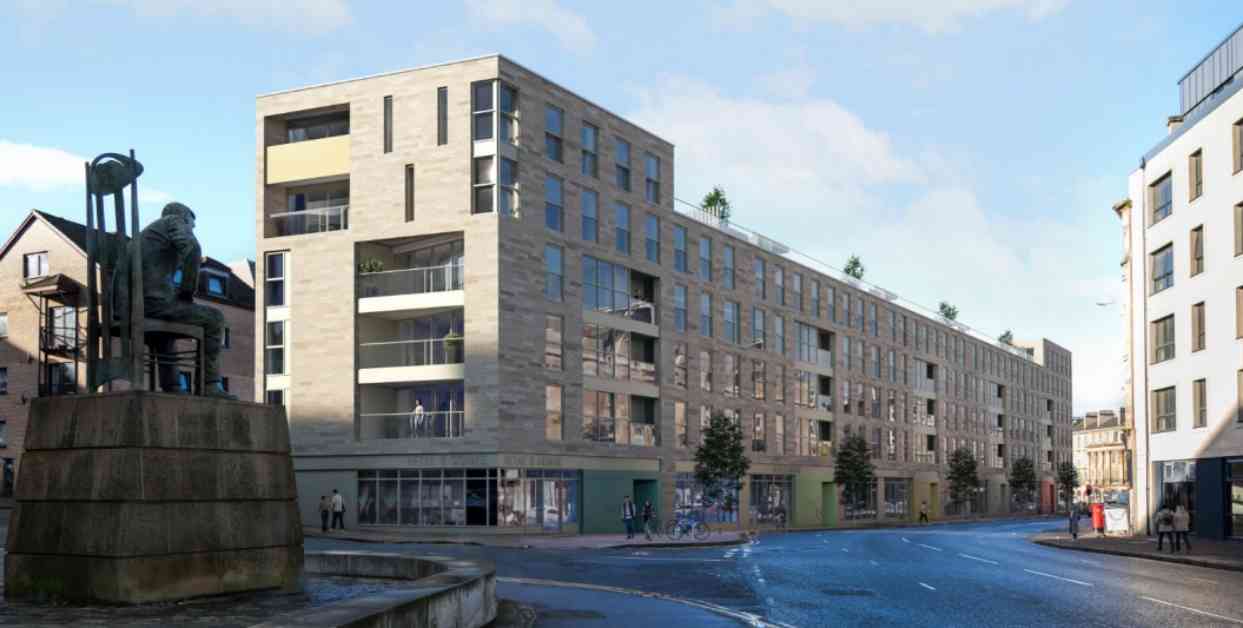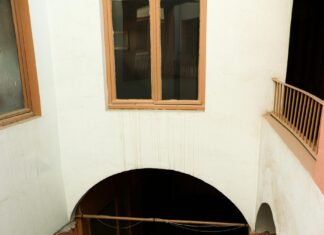Demolition of West End Police Station for New Flats Development
In a move that will transform the landscape of Argyle Street in Glasgow’s West End, plans have been approved for the demolition of the former Cranstonhill police station to make way for a development of 62 flats. The project, spearheaded by Westpoint Homes, has been granted permission by the Glasgow City Council, marking a significant step towards revitalizing this area.
The decision to demolish the old police station, which has stood empty since 2018, comes as part of a larger effort to breathe new life into the urban fabric of Argyle Street. The proposed block of flats promises a modern aesthetic that will blend seamlessly with the surrounding architecture, offering a mix of residential and commercial spaces to enhance the community.
Community Impact and Concerns
While the plans for the new flats development have been met with enthusiasm by some, there have also been concerns raised by members of the community. Over 30 objections were submitted to the council, citing worries about the impact on privacy, overshadowing, and the overall scale of the development. Despite these reservations, there were also voices of support, with six letters attesting to the benefits of the project.
In a previous attempt to redevelop the site in 2021, plans for 84 flats were rejected due to concerns about impeding daylight to adjacent properties and compromising the privacy of residents. However, the current proposal has been deemed as a major opportunity to revitalize a long-standing vacant building and introduce high-quality homes and commercial spaces to the area.
Planning Committee Decision
During a planning committee meeting, council officials deliberated on the pros and cons of the project. While acknowledging the potential impact on neighboring properties, they emphasized the positive benefits that the development would bring to the community. The decision to move forward with the demolition and construction of the new flats was ultimately seen as a step towards addressing the housing crisis and revitalizing the area.
Saqib Ahmed of the Labour party expressed support for the project, noting the urgent need for more housing options in the midst of a housing crisis. He emphasized the importance of utilizing vacant spaces to create much-needed residential units, highlighting the positive impact that the new flats development could have on the community.
Thomas Kerr of the Conservative party echoed these sentiments, stating that the former police station was an eyesore in the neighborhood. He praised the proposed development for its potential to enhance the vibrancy of Finnieston, a bustling area known for its energy and charm. Kerr emphasized the need for a mix of housing options, including private sale units, to cater to the diverse needs of the community.
Bailie Kerr added that the mix of private and social housing in the area would contribute to a more inclusive and diverse neighborhood. He emphasized the importance of striking a balance between different types of housing to ensure that all members of the community have access to suitable living options.
In conclusion, the demolition of the West End police station to make way for a new flats development represents a significant step towards revitalizing this part of Glasgow. The project has sparked a mix of excitement and concern within the community, but ultimately, the decision to move forward with the development signals a positive change for the area. As construction progresses, residents can look forward to a renewed urban landscape that offers a mix of residential and commercial spaces to enhance the quality of life in the West End.















